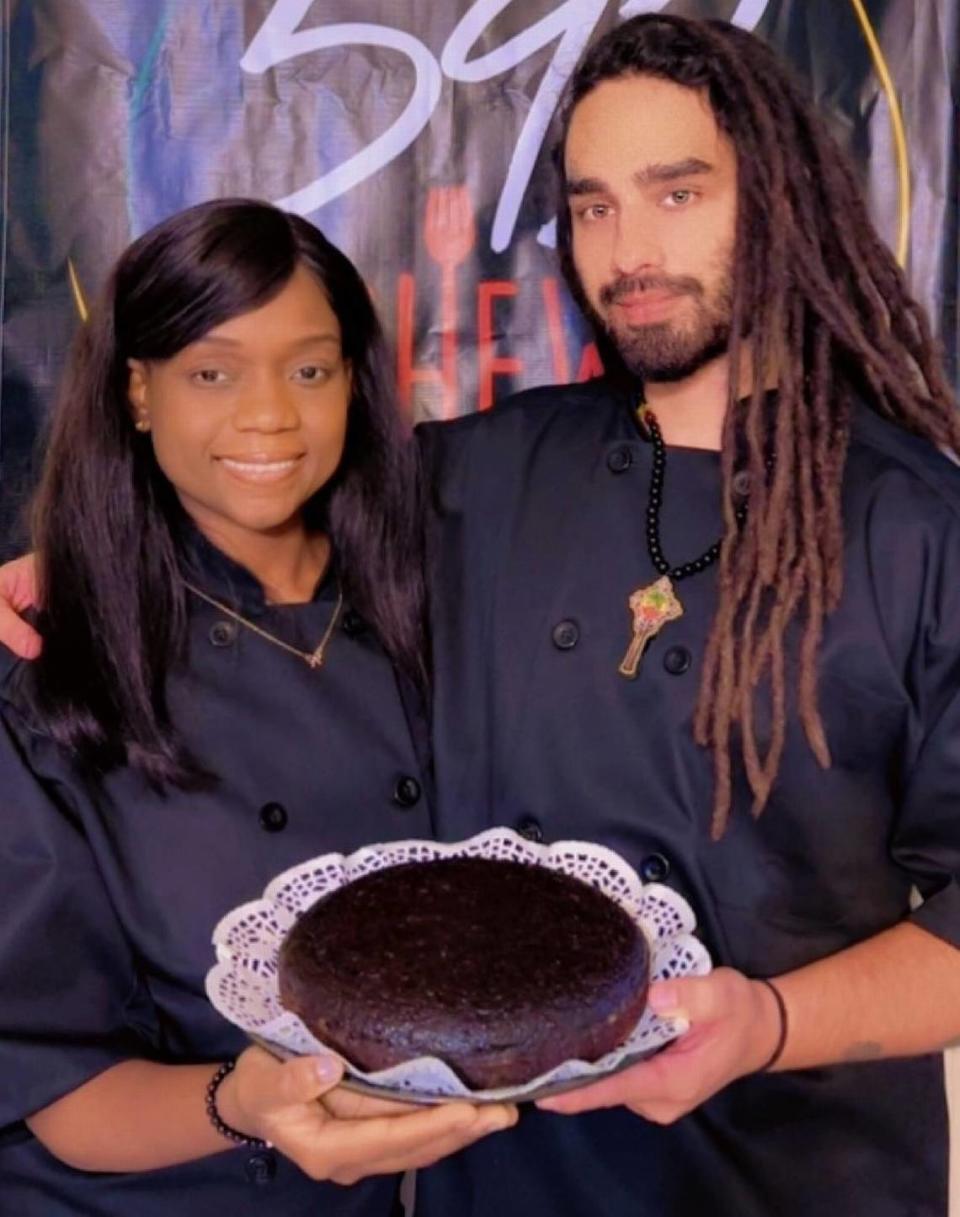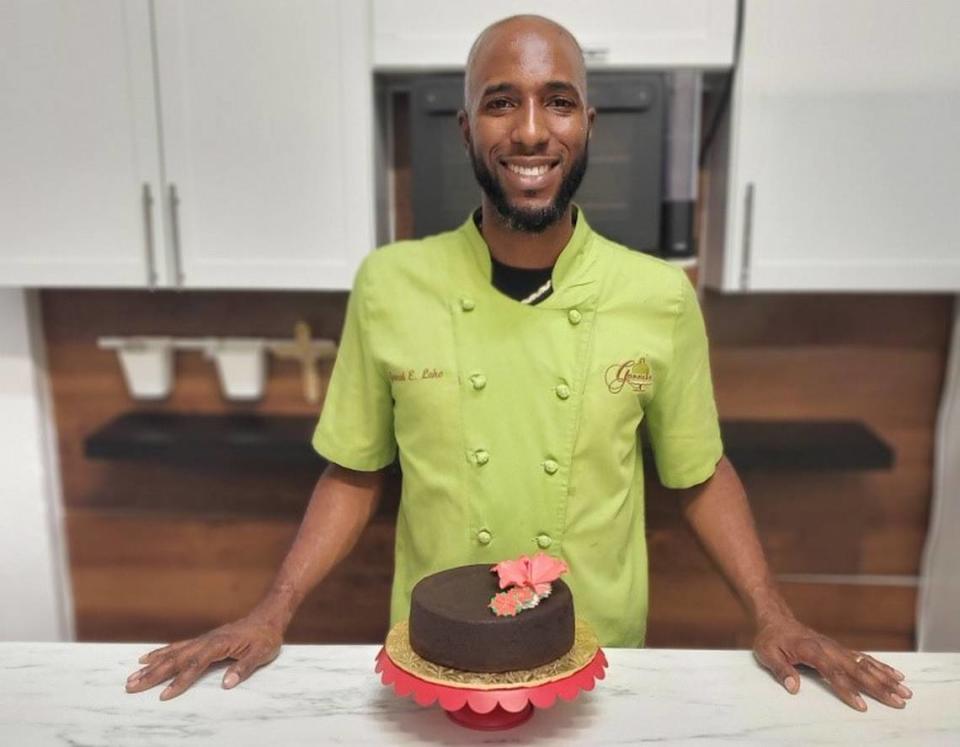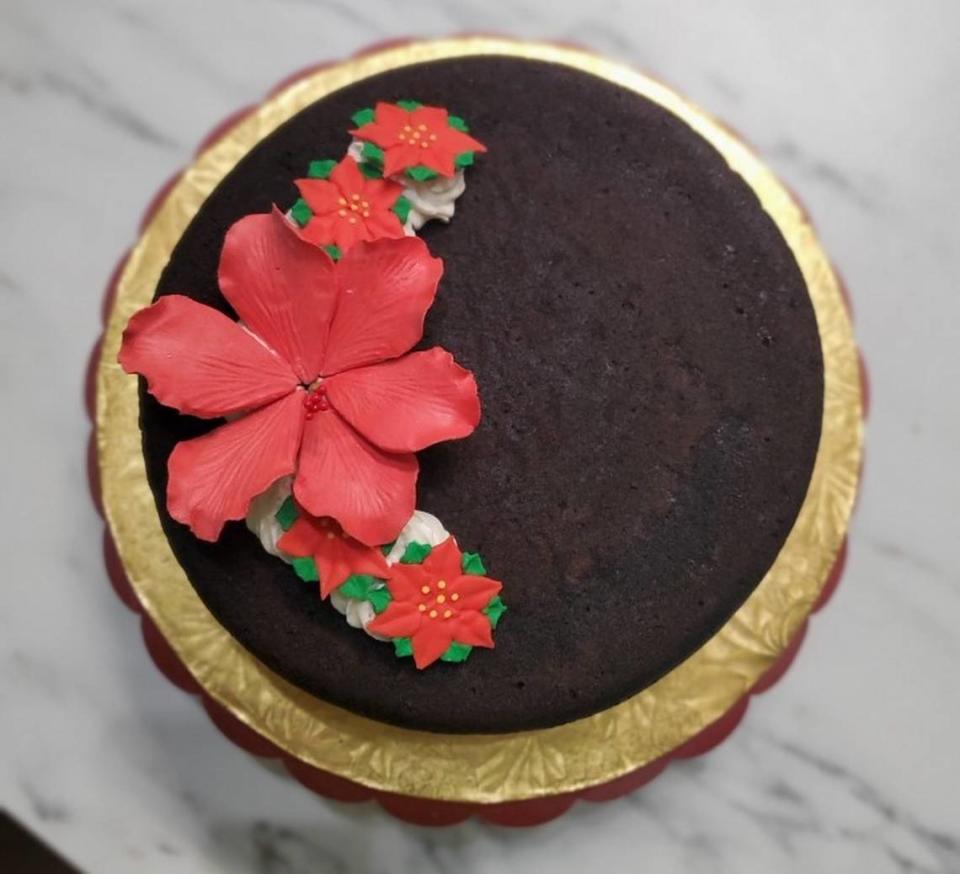This Broward festival celebrates the rich holiday tradition of Caribbean black cake
When he was growing up in Guyana, baker Kyle De’Armond was intrigued by the idea of Caribbean black cake in the way of all small children who want what they’re not allowed to have.
He watched as his grandmother carefully pulled out each year’s batch of fruit, soaked in rum and wine for at least five years. He watched her set a new batch to soaking, destined to make its appearance at a future date. He watched her bake the cake with the fruit, then, when it was out of the oven, use a spray bottle filled with rum to douse the creation every night for a week to keep it moist.
But he was deemed too young to try a piece because of the alcohol.
“It was something I was forbidden to touch,” he says now, remembering. “I had to watch from a distance.”
De’Armond, who owns 592 Chew, a Guyanese catering and vending company based in Lauderhill, was finally allowed his first small taste of black cake when he was around 7. It was, as they say, love at first bite. As a teenager, he learned to replicate his grandmother’s magic, and this weekend he’ll be making his own version at an event dedicated to celebrating the Caribbean delicacy, a holiday tradition for English-speaking Caribbean countries.
The Rum Cake and Caribbean Black Cake Fest is the second such gathering at the Island SPACE Caribbean Museum in Plantation, the first and only brick and mortar pan-Caribbean heritage museum in the United States. The event, which takes place Nov. 5 at the museum’s Broward Mall location, will offer samples of different rum cakes from around the Caribbean. You try, then you can buy.
Calibe Thompson, executive director of the nonprofit organization, says the gathering meshes nicely with the museum’s goal.
“It’s our mission to preserve, celebrate and elevate the culture in the Caribbean,” she said. “There’s a ubiquitous Caribbean presence here in South Florida. We’re trying to create events and activities that connect all of these different communities.”

Black cake may have made its way into a slightly bigger spotlight in the U.S. recently, with the publication of Charmaine Wilkerson’s novel “Black Cake” in 2022 and the subsequent Hulu TV series based on it. But the holiday dessert has long been the heart of Caribbean holiday gatherings. Most likely a tropical variation of plum pudding, a traditional dried-fruit pudding from England, it was introduced to the region by British colonizers in the 18th century and adapted over time in places like Jamaica, Trinidad, Barbados and throughout the English-speaking Caribbean.
As for the exact ingredients? In addition to the usual flour, butter, eggs, baking soda, sugar and spices, that depends on which part of the Caribbean you’re from — and what’s available.
De’Armond’s Guyanese black cake, for example, uses starfruit and jamoon, a grape-like fruit also known as a java plum that’s not necessarily found in other parts of the Caribbean.
Baker preferences and creativity play a role, too. A Rastafarian, De’Armond doesn’t eat animal products, yet still managed to create a vegan black cake using applesauce and aquafaba (chickpea water) instead of eggs. He brought it to the family Christmas gathering — and no one could tell the difference. You can try it yourself at the festival, though he’ll serve traditional black cake, too.
Jamal Lake, executive pastry chef and owner of Ganache Bakery in West Palm Beach, grew up in Saint Croix. His mother insisted on putting candied orange peels in the cake, a practice he discarded as soon as he was old enough to make his own. He also uses a good port wine to soak the fruit instead of sweeter wine and soaks the fruit for at least a year.
His other secret? Really good butter. In the Virgin Islands, he used Danish butter, but because it’s hard to find here he has switched to Irish butter.
“Caribbean people have our own way of putting a twist on things,” says Lake, who will be serving a Cruzan rum cake at the festival. “But you have to use the good stuff if you want a quality cake.”

Thompson, whose family is Jamaican, has her own unorthodox method of making black cake.
“My grandmother’s recipe is written on a crusty brown piece of paper somewhere,” she says. “I used to make it myself. It’s a rite of passage for so many! But most have big chunks of fruit, which I hate.” Her solution? Throw the fruit in the blender, an adaptation definitely not outlined in her grandmother’s recipe.
But even if the recipe isn’t traditional, even if you don’t soak the fruit for five years like De’Armond’s grandmother, even if you sneak in candied orange peels or skip the eggs, the affection for black cake is more than just nostalgia. It’s a symbol of hard times, of good times, of families gathering together and celebrating each other and their history.
For Lake, the annual onslaught of black cake orders at his bakery is a reminder that you have to know where you come from to know where you’re going.
“Black cake brings us back to our ancestral roots,” he says. “I was just telling my wife that Christmas time makes me emotional thinking of the good times. Black cake brings people together and starts conversations. It’s an opportunity to share our culture and to keep our culture alive, making this cake. It’s saying ‘Hey, this is where we came from and this is where we are.”

Rum Cake and Caribbean Black Cake Fest
Where: Island SPACE Caribbean Museum, Broward Mall, 8000 West Broward Blvd., Plantation
When: 2-6 p.m. Nov. 5
Tickets: $15
More information: islandspacefl.org

